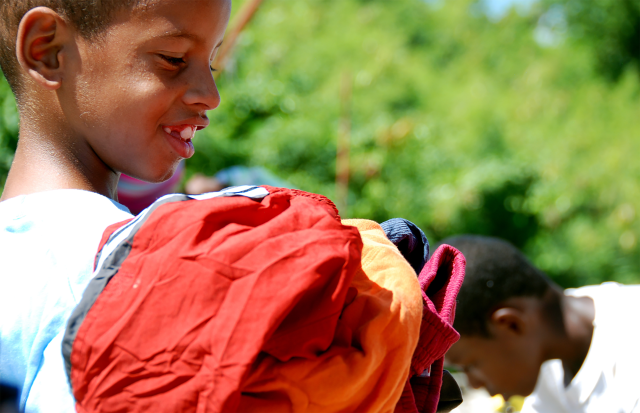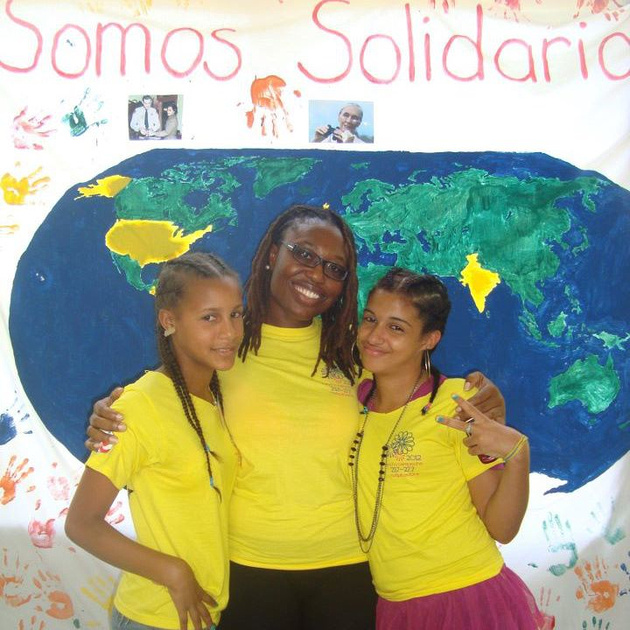- 2016 Macbook Pro
- Dominican Republic 2016 Mac Humanitarian Project Management
- Dominican Republic 2016 Mac Humanitarian Project Manager
Project HOPE recently delivered COVID-19 Mental Health and Resiliency training for health care workers in the Dominican Republic and Indonesia. Since June, Project HOPE has reached more than 2,400. Imagine a trip that is fun and makes a difference. Our Humanitarian Vacation with John Bytheway in the Dominican Republic is the answer!
SANTO DOMINGO — Located in the Caribbean, the Dominican Republic is home to nearly 11 million individuals. Despite being vulnerable to natural disasters such as hurricanes and earthquakes, the country has experienced one of the strongest economic growths in the region in 25 years.

In the first quarter of 2017, the economy expanded by 5.2 percent; this growth helped lower the number of Dominicans living in poverty to approximately 30 percent. While the country has seen significant improvements in their economic wellbeing, social spending remains low compared to other countries in the region. Many people are in need of greater access to services such as healthcare and education; thus, three organizations have been able to provide significant humanitarian aid to the Dominican Republic.
Project HOPE
Project HOPE has been operating in the Dominican Republic since 1996. In partnership with the Dominican Association of the Order of Malta (ADOM), the organization works extensively to improve the health of women and children. In 2002, the organization opened its first women and children’s health clinic, followed by another clinic in 2003. Today, both clinics are entirely self-reliant, while Project Hope simply provides technical oversight. To date, these two clinics alone have provided more than two million medical services to more than 100,000 women and children.
In 2004, the Dominican Republic experienced devastating flooding. Project HOPE responded by sending over a million dollars in medicines and medical supplies. Several years later, Project HOPE also sent vaccines worth three million, in hopes of providing doses of Tetanus and Diphtheria.
In 2014, Project HOPE was chosen to implement a project called “Alerta Joven.” The project itself was financed by USAID with the goal of creating a security network for young people in situations of violence and crime in the Dominican Republic. Project HOPE was able to impact more than 4,200 individuals by providing education and job opportunities to young adults who are at risk for exploitation. The humanitarian aid to the Dominican Republic provided through Project HOPE helped millions of people in need.

Dream Project
Dream Project is an organization that is committed to improving the livelihood of children in the Dominican Republic by providing access to education. The school system in the Dominican Republic produces some of the lowest educational outcomes in Latin America, and the Dream Project seeks to increase these rates. Its programs begin with early childhood programs that are geared towards the needs of children between the ages of two and seven.
One of the first steps in the Dream Project’s educational program is documentation. In the Dominican Republic, nearly one in five children under five do not have a birth certificate. The LUCEROS Documentation program helps families gain access to legal documentation, and in turn, sets children up for success in education. To date, over 250 documentation cases have been resolved and nearly 700 students are enrolled in its preschool and elementary school.
Dream Project also focuses its efforts on holistic youth development for individuals between the ages of 12 to 25. This program is focused on several key areas: sexual and reproductive health, job training, life skills, entrepreneurship, university scholarships and music education. Approximately one-third of all Dominican youth are unemployed, and the program called “A Ganar” works to equip youth with job training and life skills. Dream Project also works in collaboration with donors to provide qualified students with full or partial scholarships to universities.
The Dream Project has been able to impact thousands of individuals by providing humanitarian aid to the Dominican Republic.
Pujols Family Foundation
The founder of the Pujols Family Foundation, Albert Pujols spent his first sixteen years of life in the Dominican Republic. Today, he now plays professional baseball for the Los Angeles Angels. The Pujols Family Foundation’s goal is to improve the health and quality of life for thousands living in poverty, by providing health care, mentorship, and education. The foundation works in seven areas throughout the Dominican Republic, with full medical teams consisting of doctors, dentists, optometrists, pediatricians, and a full pharmacy. Over the past decade, over 18,000 individuals (often in slums) have been served.
The Pujols Family Foundation also has programs that include a baseball league. The goal of the league is to provide mentorship to young boys. The foundation seeks to instill and encourage young boys to become responsible husbands, fathers, and community leaders.
The Pujols Family Foundation’s continual humanitarian aid to the Dominican Republic has helped to improve thousands of lives of those living in slums throughout the country.
The humanitarian aid to the Dominican Republic has had profound impacts on the lives of millions in need — many individuals have received adequate medical care, as well as access to education. Despite these organizations’ success, many still live in poverty; as a result, the country is still in need of local and global support.
– Sarah Jane Fraser
Photo: Flickr
This year’s clinic focuses on the fallout of the Dominican Republic’s Law 169-14 and the Plan for the Regularization of Foreigners (PNRE) on the Haitian side of the border, including the reasons why any Haitians or Dominicans of Haitian descent fled, were deported or expulsed from the Dominican Republic (DR), as well as the conditions along the border and available support from the Haitian government, civil society, and international actors. Through fieldwork and desk research, the team is analyzing the issue, the relevant international and domestic legal regimes, responses, policies, and programs from the government, international government organizations, private sector and civil society. The resulting report aims to feature this research and make corresponding policy recommendations to the various actors involved. The student team is responsible for all stages of the project: refining the project proposal, identifying key stakeholders (government officials, IGOs, civil society, individuals, etc.), drafting research questions, arranging interviews and briefings, conducting background research on the issues in preparation for the fact-finding trip; participating in the fact-finding trip; outlining, drafting, editing and finalizing the report; and presenting the report to the SAIS Community, general public and media.
Background

In September 2013, the Constitutional Court of the DR issued Sentence 168-13, which altered the requisites of citizenship such that approximately 250,000 citizens of foreign descent were rendered stateless. Due to the volume and history of migration from Haiti to the DR, Dominicans of Haitian descent were particularly affected. Additionally, the sentence called for the PNRE in order to regularize undocumented migrants, a plan of particular significance for the sizable Haitian population. In the following year, after international criticism, the DR government adopted Law 169-14, a naturalization law that aimed to alleviate the harms of the previous ruling. However, the inherent flaws in the structure and implementation of these laws, as well as the socio-political climate, have led to increasing penalization, denationalization and expulsion, deportation and fleeing of individuals to Haiti. Matters are further complicated by inadequate support for these individuals on the Haitian side of the border. As the migration crisis intensifies, there is a crucial need to study it, find methods to alleviate it and better inform the parties who have the power to make active interventions. Moreover, upcoming presidential elections in both the DR and Haiti offer opportunities for change in official policy and dialogue around this issue.
2016 Macbook Pro
Research Objectives
Dominican Republic 2016 Mac Humanitarian Project Management

Dominican Republic 2016 Mac Humanitarian Project Manager
The primary objectives of this research pertain to exploring and understanding the outcomes and implications of the DR’s Law 169-14 and the PNRE on the Haitian side of the border. This involves investigating the relevant international and domestic legal regimes, responses, policies, and programs from the Haitian government, international governmental organizations, and respective members of the private sector and civil society. The clinic aims to collect information, accurately report on the researchers’ findings and yield policy recommendations with regard to the current crisis in the Haiti-DR border.
